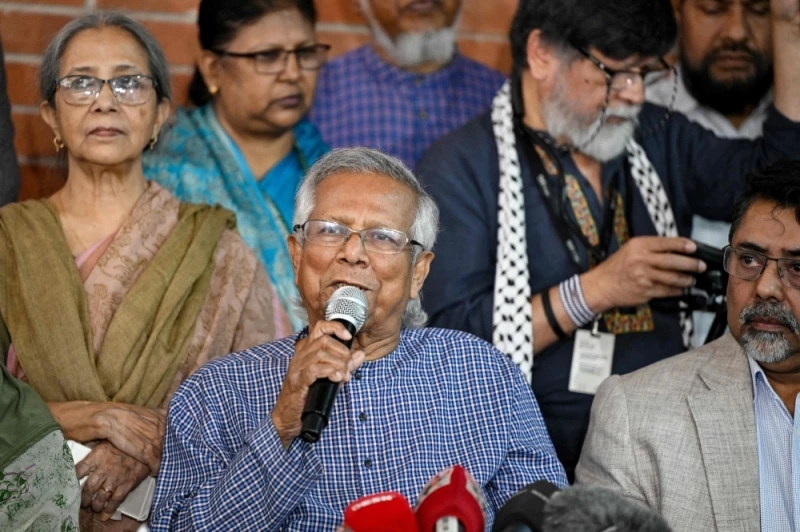A Bangladesh bank confirmed Saturday it had ousted Nobel peace laureate Muhammad Yunus from two businesses he founded, weeks after his conviction in a criminal case his supporters say was politically motivated.
Yunus, 83, is credited with lifting millions out of poverty with his pioneering microlender Grameen Bank but has earned the enmity of long-time Prime Minister Sheikh Hasina, who has accused him of "sucking blood" from the poor.
Hasina's government forced Yunus' resignation from the bank in 2011, leaving him to concentrate on running dozens of anti-poverty firms he has founded.
The bank's current government-appointed chairman said on Saturday its board had nominated new directors for at least two enterprises still under Yunus's control.
"They don't own the enterprises," A.K.M Saiful Majid told reporters. "They are subsidiaries of the Grameen Bank."
Grameen Bank chief legal counsel Masud Akhter said in a statement that Majid was now chairman of Grameen Telecom and Grameen Kalyan.
Grameen Telecom, originally created to offer cheap mobile phone services in rural areas, is one of Bangladesh's richest companies.
It owns a 34 percent stake in the country's largest mobile phone network, worth billions of dollars.
- 'Outsiders' -
Yunus told a news conference on Thursday a group of "outsiders" had come to a building that houses several of his companies this week to "forcefully" take over the offices and lock staff out.
He said there was no legal basis for his ouster but that police had refused to register a criminal complaint.
Majid rejected the suggestion that the takeover had been forceful or illegal.
Yunus's popularity among the Bangladeshi public has for years earmarked him as a potential rival to Hasina, who won a fifth term in office last month after an election boycotted by opposition parties.
Her administration has been increasingly forceful in its crackdown on dissent and critics accuse Bangladeshi courts of rubber-stamping decisions made by her government.
Yunus and three colleagues from Grameen Telecom were sentenced to six months in jail last month after they were found guilty of violating labour laws.
All four denied the charges, which supporters and rights groups said were politically motivated, and have been bailed pending appeal.
Yunus is facing more than 100 other charges over alleged labour law violations and graft.
Rights group Amnesty International said this week "the ongoing harassment and intimidation of Professor Yunus is a blatant abuse of power".


